
Nassau: Jewel of the Bahamas
Nassau, the capital city of the Bahamas, is a vibrant hub of culture, history, and natural beauty. Located on the island of New Providence, Nassau boasts stunning beaches, crystal-clear waters, and a rich cultural heritage that dates back to the 17th century. The city is a blend of colonial architecture and modern amenities, making it a captivating destination for travelers. History enthusiasts will find Nassau's past intriguing, with sites such as the 18th-century Fort Charlotte and the Queen's Staircase, carved out of limestone by slaves in the late 1700s. The city's museums, including the Pirates of Nassau Museum, offer a glimpse into the pirate era that once dominated the Caribbean. For those seeking relaxation, Nassau's Cable Beach and Junkanoo Beach provide perfect spots to unwind and soak up the sun. Water sports enthusiasts can explore the vibrant marine life through snorkeling and diving expeditions. Nassau's bustling Straw Market and Bay Street offer a variety of shopping opportunities, from local crafts to luxury goods. The city's lively nightlife, with its array of bars, restaurants, and casinos, ensures that visitors have plenty of entertainment options after the sun sets.
Local tips in Nassau
- Visit Fort Charlotte for a panoramic view of Nassau and learn about the island's military history.
- Check out the Straw Market early in the morning to avoid crowds and get the best deals on local crafts.
- Take a boat tour to Paradise Island for a day of fun at Atlantis Resort's water park and marine habitat.
- Explore the local cuisine by trying Bahamian dishes such as conch fritters and rock lobster at Arawak Cay.
- Plan your visit around Junkanoo Festival in late December and early January for a vibrant display of Bahamian culture and music.
Neighbourhoods in Nassau
Nassau: Jewel of the Bahamas
Nassau, the capital city of the Bahamas, is a vibrant hub of culture, history, and natural beauty. Located on the island of New Providence, Nassau boasts stunning beaches, crystal-clear waters, and a rich cultural heritage that dates back to the 17th century. The city is a blend of colonial architecture and modern amenities, making it a captivating destination for travelers. History enthusiasts will find Nassau's past intriguing, with sites such as the 18th-century Fort Charlotte and the Queen's Staircase, carved out of limestone by slaves in the late 1700s. The city's museums, including the Pirates of Nassau Museum, offer a glimpse into the pirate era that once dominated the Caribbean. For those seeking relaxation, Nassau's Cable Beach and Junkanoo Beach provide perfect spots to unwind and soak up the sun. Water sports enthusiasts can explore the vibrant marine life through snorkeling and diving expeditions. Nassau's bustling Straw Market and Bay Street offer a variety of shopping opportunities, from local crafts to luxury goods. The city's lively nightlife, with its array of bars, restaurants, and casinos, ensures that visitors have plenty of entertainment options after the sun sets.
When is the best time to go to Nassau?
Iconic landmarks you can’t miss
Nassau Bahamas Cruise Terminal
Experience the vibrant gateway to the Bahamas at the Nassau Cruise Terminal, where culture, shopping, and adventure await every traveler.

Queen's Staircase
Explore Queen's Staircase in Nassau, a historic landmark carved from limestone, symbolizing freedom and a testament to Bahamian heritage.
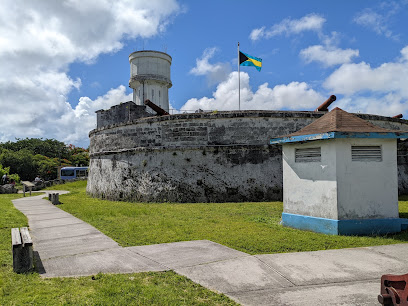
Fort Montague
Explore Fort Montague in Nassau, a historical landmark showcasing the military past of the Bahamas with stunning coastal views.
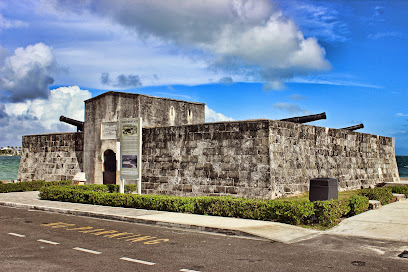
Ardastra Gardens & Wildlife Conservation Centre
Discover the beauty of nature at Ardastra Gardens & Wildlife Conservation Centre, where wildlife conservation meets breathtaking tropical gardens.
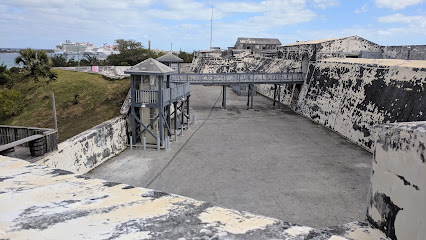
Western Esplande Beach
Discover the beauty of Western Esplande Beach in Nassau, Bahamas—a perfect blend of relaxation, adventure, and local culture.

Pirate Jeep Tours
Discover Nassau's stunning landscapes and rich culture with thrilling adventures at Pirate Jeep Tours. Unforgettable experiences await in the Bahamas!
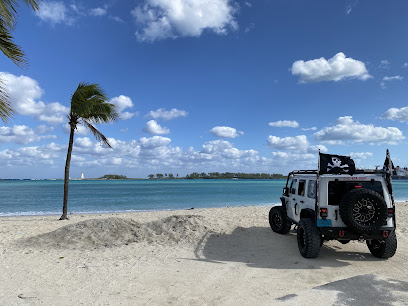
Dolphin Cay Atlantis
Experience unforgettable dolphin encounters in a stunning marine habitat at Dolphin Cay Atlantis, Paradise Island, Bahamas.

Pompey Museum
Explore the profound history of the Bahamas at Pompey Museum, a captivating journey into the lives of enslaved Africans and their fight for freedom.
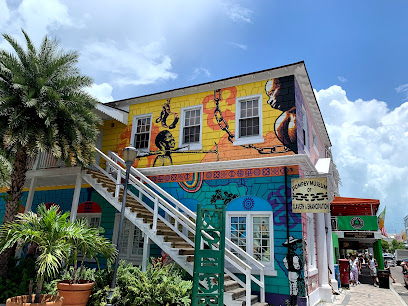
Fort Fincastle
Explore the rich history and breathtaking views at Fort Fincastle, a colonial-era fortress in Nassau, Bahamas.
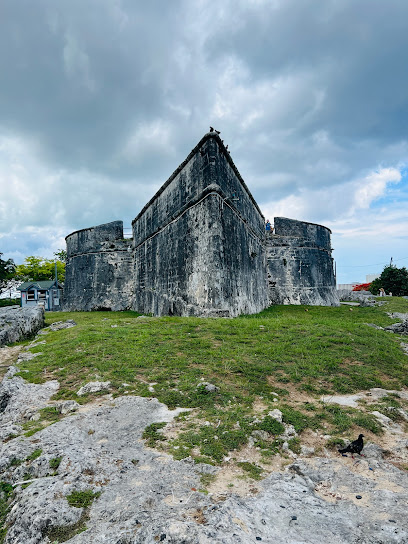
Prince George Wharf
Experience the vibrant culture and stunning views at Prince George Wharf, Nassau's bustling cruise terminal and gateway to Bahamian adventure.
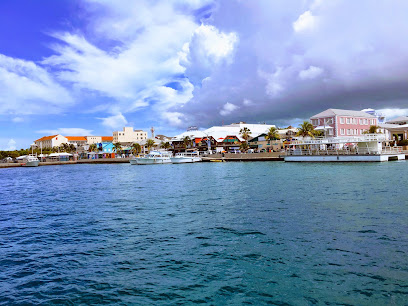
St. Francis Xavier Cathedral
Explore the rich history and spiritual beauty of St. Francis Xavier Cathedral, a stunning landmark in Nassau's vibrant cultural landscape.
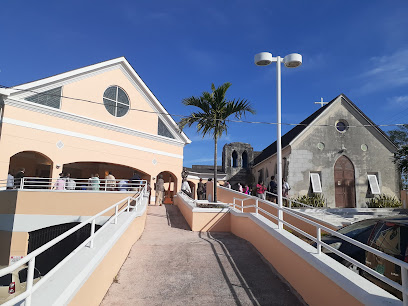
Clifton Heritage National Park
Explore the breathtaking landscapes and rich history of Clifton Heritage National Park, a must-visit destination in Nassau, Bahamas.
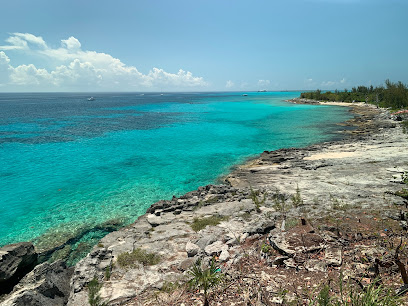
Government House
Explore the rich history and stunning architecture of Government House, a key historical attraction in the heart of Nassau, Bahamas.
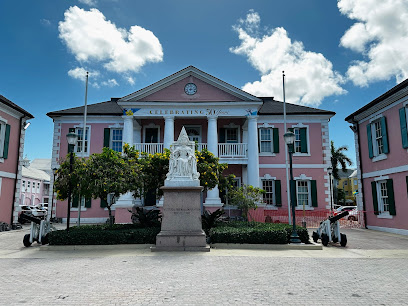
Junkanoo World
Explore the vibrant cultural heritage of the Bahamas at Junkanoo World, where the lively spirit of Junkanoo festival comes to life through exhibits and unique local crafts.
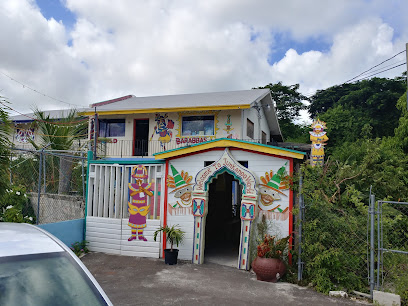
Nassau Harbour Lighthouse
Experience the stunning Nassau Harbour Lighthouse, a historical gem that offers breathtaking views and a glimpse into the maritime heritage of the Bahamas.
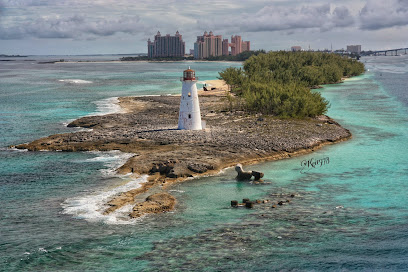
Unmissable attractions to see
Atlantis Paradise Island Bahamas
Experience the ultimate luxury and adventure at Atlantis Paradise Island, a stunning resort in the Bahamas with world-class amenities and breathtaking beauty.
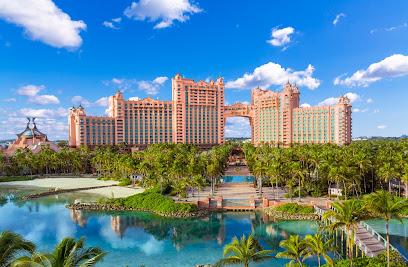
Nassau Straw Market
Discover the colorful Nassau Straw Market, where Bahamian craftsmanship meets vibrant culture in a bustling shopping experience.
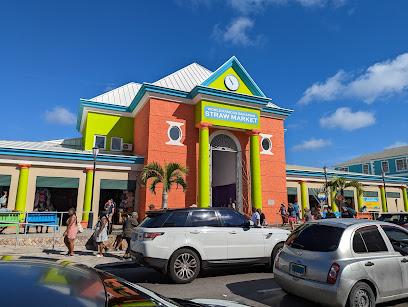
Baha Mar
Discover the ultimate luxury resort experience at Baha Mar in Nassau, where stunning beaches meet world-class amenities and Bahamian hospitality.

Queen's Staircase & Shore Excursions
Explore the historic Queen's Staircase in Nassau, a breathtaking landmark showcasing the resilience of the Bahamian people with stunning views and rich history.
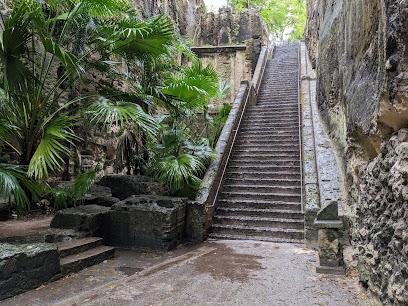
Señor Frog's | Nassau
Discover the lively atmosphere of Señor Frog's in Nassau, where tropical cocktails and vibrant entertainment create unforgettable memories.
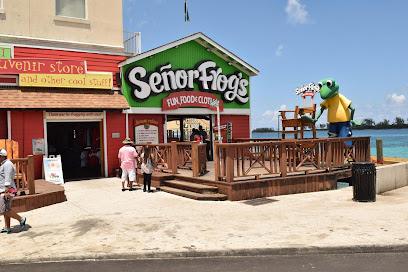
Junkanoo Beach
Discover the vibrant atmosphere of Junkanoo Beach in Nassau, where sun, sand, and Bahamian culture come together for an unforgettable experience.
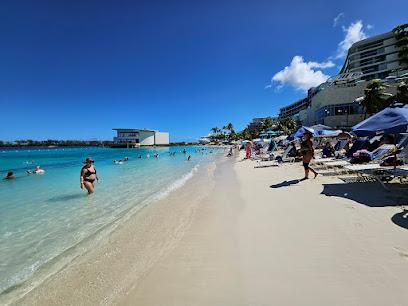
Pirates of Nassau
Discover the thrilling world of piracy at the Pirates of Nassau museum, where history comes alive through immersive exhibits and captivating tales of adventure.
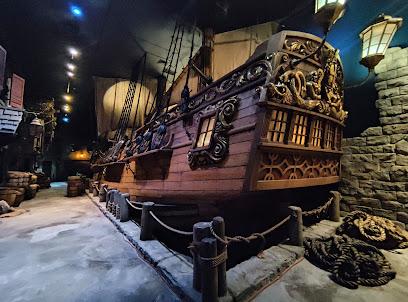
Fort Montague
Discover the rich history and stunning views at Fort Montagu, Nassau's iconic historical landmark and a must-visit tourist attraction.
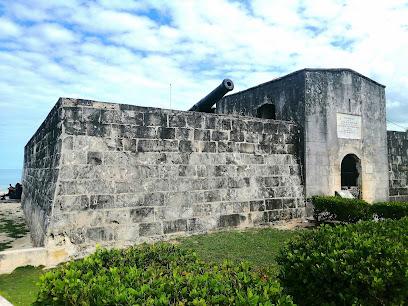
Dolphin Encounters
Experience unforgettable dolphin encounters in the tropical paradise of Nassau, Bahamas—swim, learn, and connect with these magnificent marine creatures.
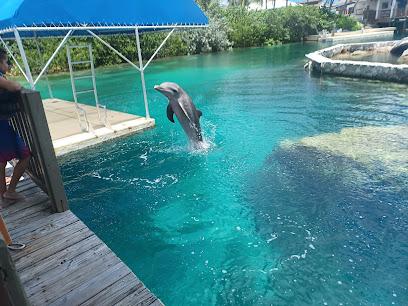
Ardastra Gardens & Wildlife Conservation Centre
Explore the breathtaking Ardastra Gardens & Wildlife Conservation Centre, a vital sanctuary for Bahamian wildlife and a beautiful garden experience.
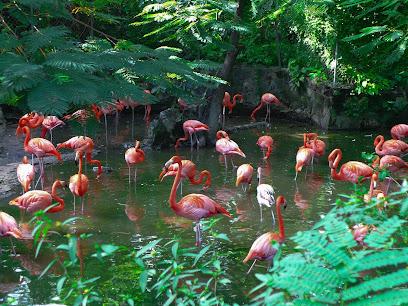
Thomas A Robinson National Stadium
Discover the excitement of sports and culture at Thomas A Robinson National Stadium, Nassau's premier venue for unforgettable events and local celebrations.
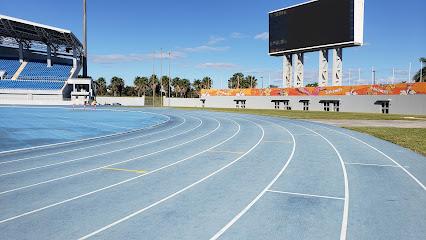
Sandyport Beach Resort
Experience the vibrant charm and tranquility of Sandyport Beach Resort, a tropical getaway in Nassau, Bahamas, perfect for families and adventurers alike.

Stuart Cove's
Explore the vibrant underwater paradise at Stuart Cove's, Nassau's premier dive shop for unforgettable diving and snorkeling experiences.
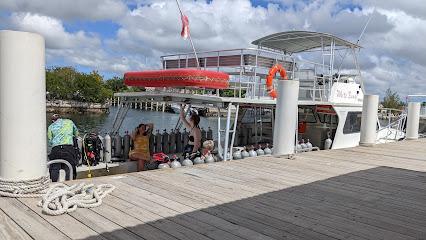
Paradise Island
Discover the beauty of Paradise Island, a tropical haven in the Bahamas with stunning beaches, vibrant marine life, and luxurious resorts for every traveler.
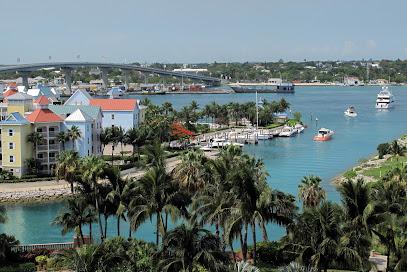
John Watling's Distillery
Discover the essence of Bahamian rum at John Watling's Distillery, a historical landmark in Nassau offering tours, tastings, and local cuisine.
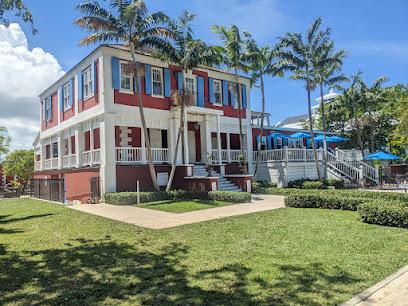
Essential places to dine
Twin Brothers
Experience authentic Bahamian seafood at Twin Brothers in Nassau - where fresh flavors meet local hospitality.
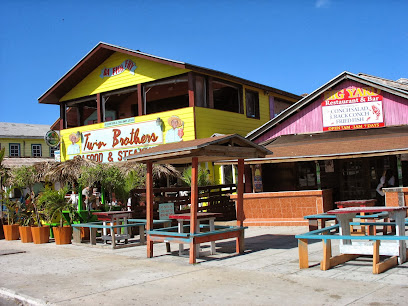
Oh Andros
Experience authentic Bahamian cuisine at Oh Andros in Nassau - a delightful blend of flavors and island hospitality.
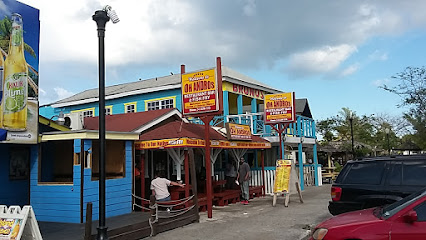
Poop Deck
Discover exquisite seafood dining at Poop Deck in Nassau; where fresh catches meet stunning ocean views for an unforgettable culinary experience.
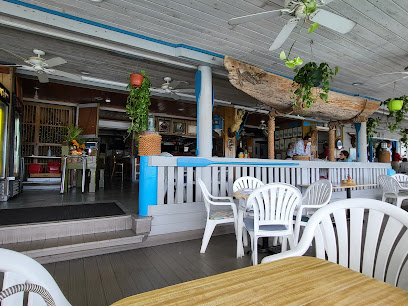
Pirate Republic Brewing
Experience Nassau's vibrant brewpub culture at Pirate Republic Brewing with craft beers and delicious Bahamian cuisine.
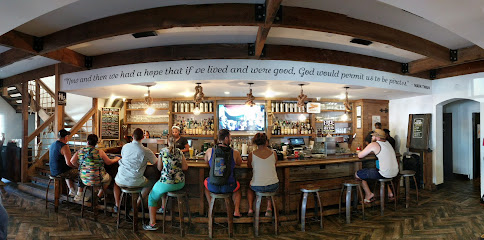
Cricket Club Restaurant & Pub
Experience authentic Bahamian cuisine at Cricket Club Restaurant & Pub in Nassau - where great food meets island vibes.
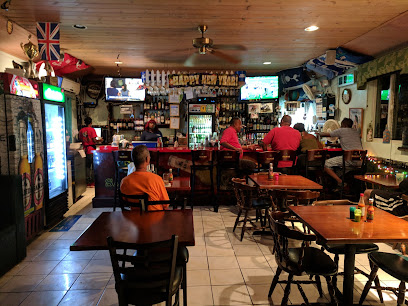
Latitudes
Experience authentic Bahamian flavors at Latitudes in Nassau - a must-visit culinary destination for every traveler.
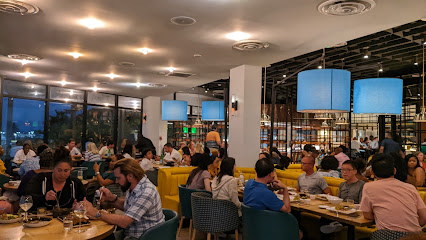
Da Plantation Bar & Grill
Discover Bahamian culinary delights at Da Plantation Bar & Grill in Nassau – where vibrant flavors meet island hospitality.
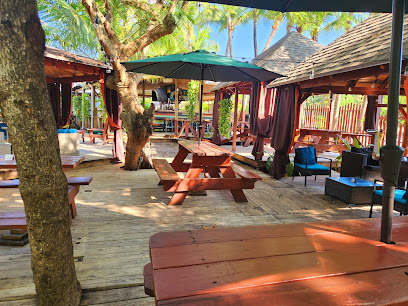
Social House Sushi & Grill
Experience exquisite sushi and grill delicacies at Social House Sushi & Grill in Nassau - where Bahamian flavors meet culinary artistry.
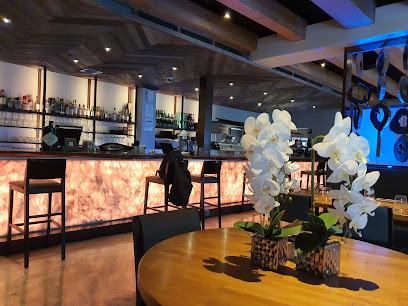
Blue Sail Bar & Grill
Experience authentic Bahamian cuisine at Blue Sail Bar & Grill with fresh seafood, vibrant cocktails, and breathtaking ocean views.
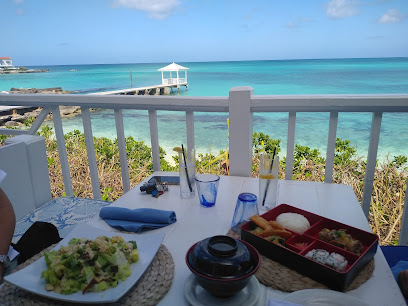
Curly's Restaurant and Bar
Experience authentic Caribbean cuisine at Curly's Restaurant and Bar in Nassau - where every meal is a celebration of flavor.
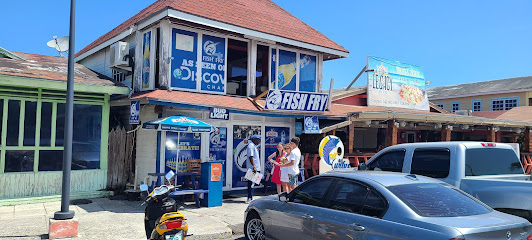
Wild Thyme Restaurant & Bar
Experience authentic Bahamian cuisine at Wild Thyme Restaurant & Bar in Nassau – where every dish tells a story.
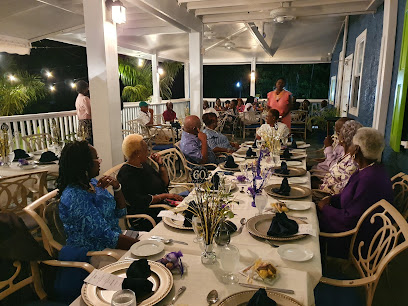
The Bearded Clam Sports Bar & Restaurant
Experience authentic Bahamian cuisine at The Bearded Clam Sports Bar & Restaurant in Nassau – where good food meets great vibes.
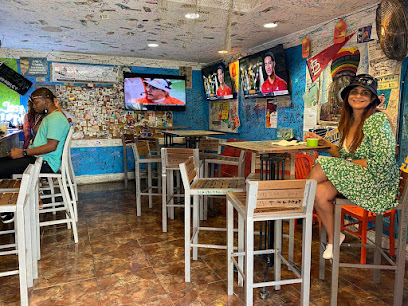
Athena Cafe & Bar
Experience authentic Greek cuisine at Athena Cafe & Bar in Nassau - where delicious flavors meet warm hospitality.
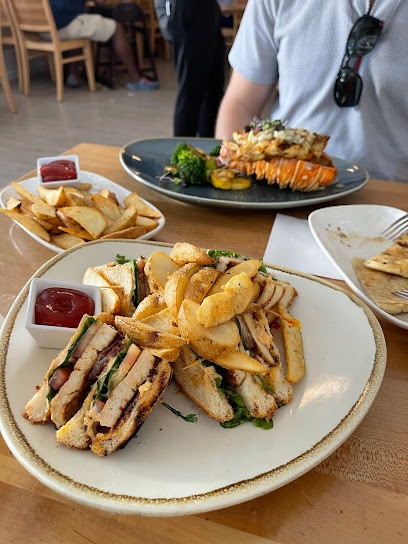
Mogano by Giorgio Locatelli
Experience culinary excellence at Mogano by Giorgio Locatelli - where authentic Italian flavors meet breathtaking views in Nassau.
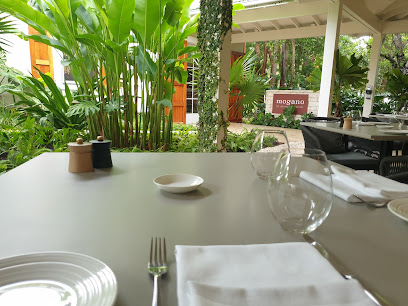
The Swimming Pig Gastropub
Experience vibrant dining at The Swimming Pig Gastropub in Nassau, where local flavors meet international cuisine in a lively atmosphere.
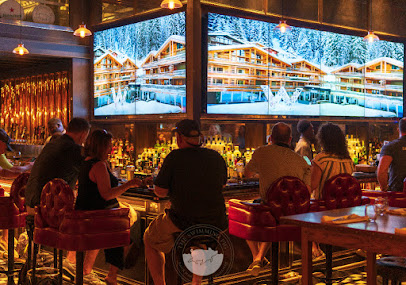
Markets, malls and hidden boutiques
Nassau Straw Market
Explore Nassau Straw Market, where vibrant culture meets unique Bahamian craftsmanship in an unforgettable shopping experience.
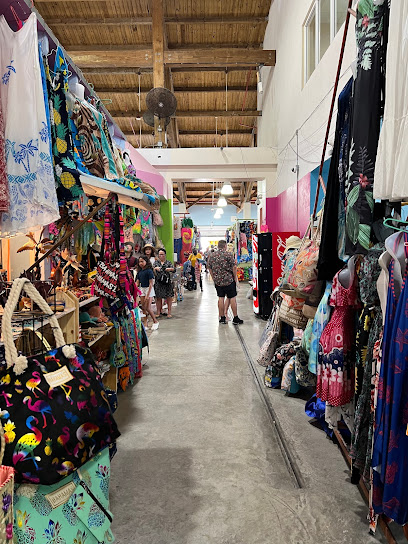
Marathon Mall
Discover the best shopping, dining, and entertainment at Marathon Mall in Nassau, a vibrant hub for local and international visitors alike.
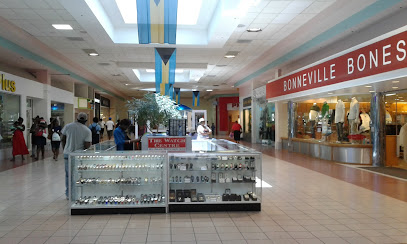
Craft Cottage Bahamas
Explore the vibrant artistry of Bahamas at Craft Cottage, the ultimate destination for unique handmade crafts and souvenirs.
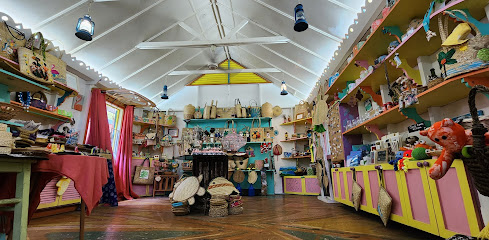
JaDazzles Clothing & Accessories
Explore trendy clothing and unique accessories at JaDazzles Clothing & Accessories, where Bahamian style meets delightful shopping in Nassau.
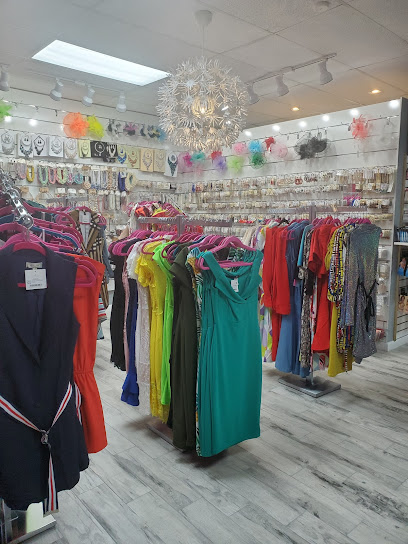
Edge Couture
Discover unique fashion treasures at Edge Couture, Nassau's chic clothing store offering stylish apparel and accessories for every occasion.
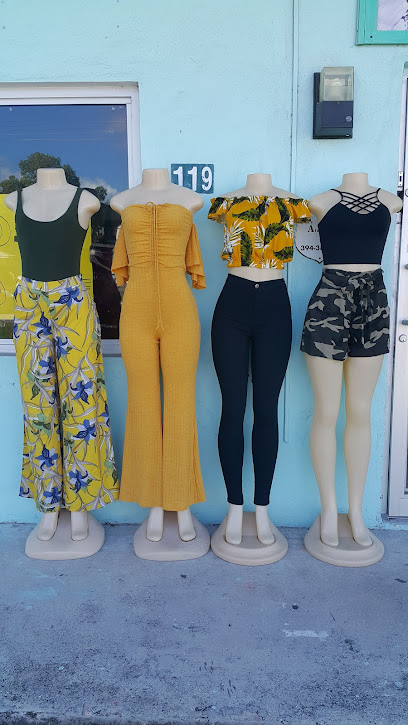
I Love Nassau
Explore the vibrant essence of the Bahamas at I Love Nassau, the ultimate souvenir store for unique gifts and local treasures.
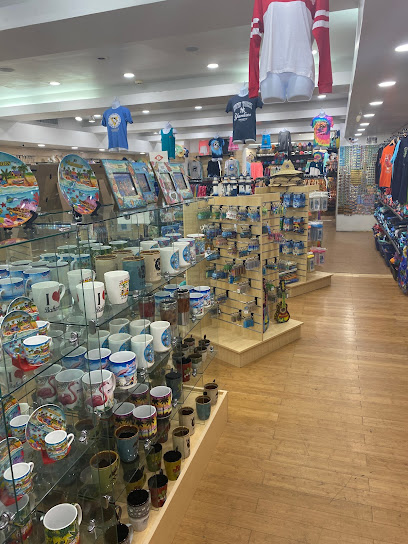
Cat Walk Boutique
Explore Cat Walk Boutique in Nassau for unique Bahamian fashion, trendy apparel, and accessories that capture the island's vibrant spirit.
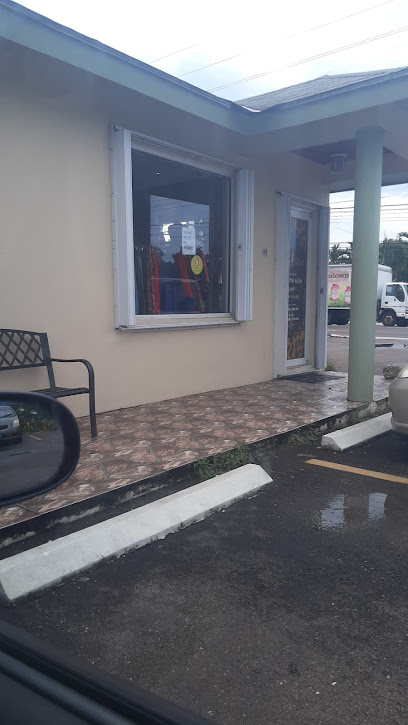
fab finds gift shop
Explore Fab Finds Gift Shop in Nassau for unique gifts, handmade crafts, and a delightful shopping experience in the Bahamas.
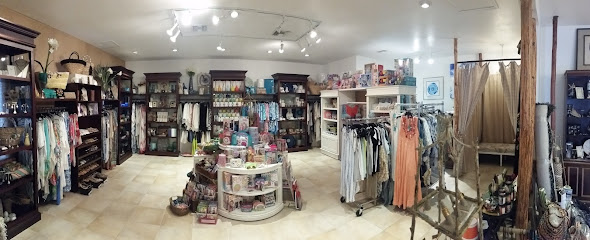
Black Food Bookstore & Culture Shop
Explore a vibrant celebration of Black culture at Black Food Bookstore & Culture Shop, your destination for unique gifts, clothing, and literature.
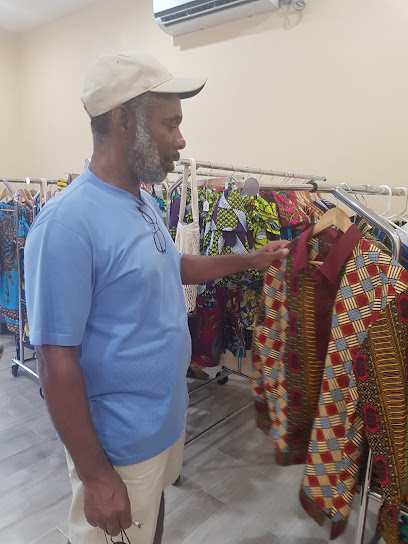
Itzy Bitzy
Discover unique Bahamian treasures at Itzy Bitzy, the must-visit gift shop in Nassau for memorable souvenirs and local crafts.
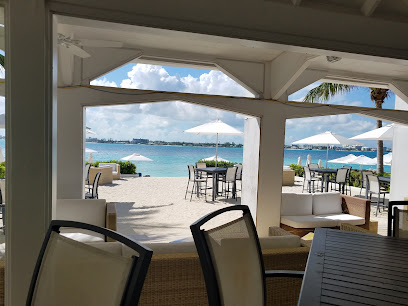
Joannsouvenirs Bahamas
Explore Joannsouvenirs Bahamas for unique, handcrafted souvenirs that capture the vibrant spirit of the islands.
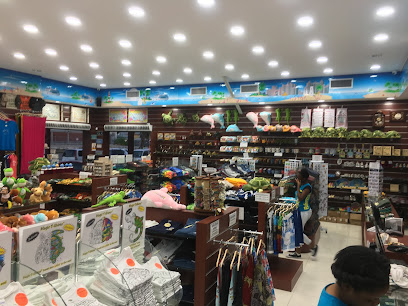
Cole's of Nassau
Explore Bahamian fashion at Cole's of Nassau, where local charm meets contemporary style in the heart of Nassau's vibrant shopping scene.
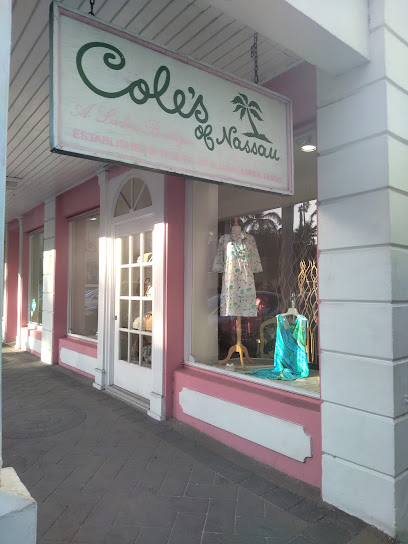
My Ocean Baha Mar
Explore My Ocean Baha Mar: Your ultimate stop for authentic Bahamian souvenirs and unique gifts at the luxurious Baha Mar Resort.
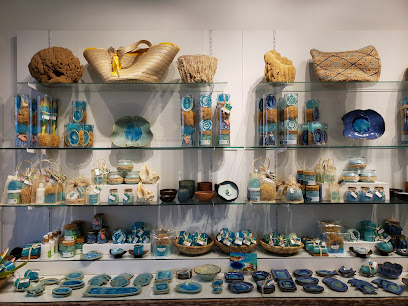
Trinkets and Treasures
Discover unique souvenirs and handcrafted treasures in Nassau at Trinkets and Treasures, your go-to gift shop for authentic Bahamian keepsakes.

Exclusive Bahamian Craft
Discover the essence of Bahamian craftsmanship at Exclusive Bahamian Craft, a handbag shop offering unique, handmade treasures in Nassau.
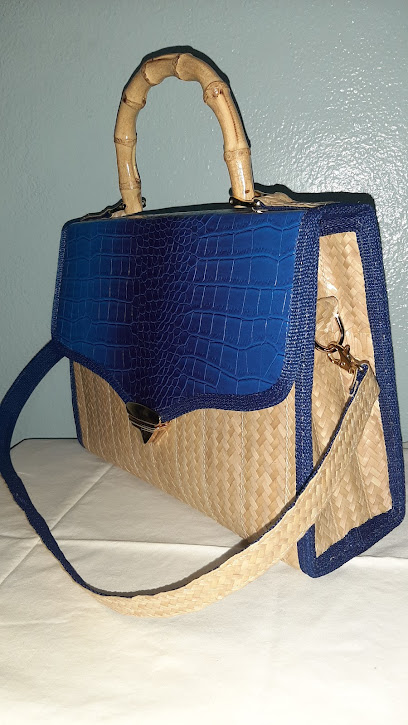
Essential bars & hidden hideouts
Señor Frog's | Nassau
Dive into the vibrant nightlife of Nassau at Señor Frog's, where great food, lively music, and unforgettable moments await every visitor.
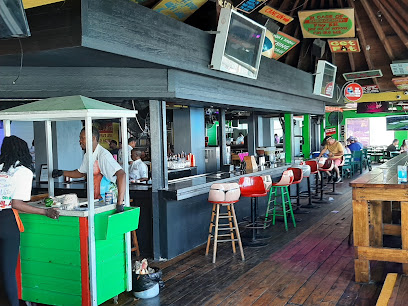
Da Daiquiri Shack
Experience the refreshing taste of paradise at Da Daiquiri Shack in Nassau, a vibrant bar known for its delicious, fresh fruit daiquiris and friendly atmosphere.
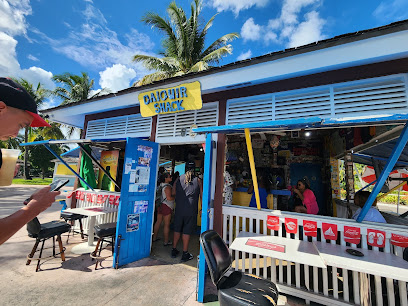
The Swimming Pig Gastropub
Experience the vibrant flavors of the Bahamas at The Swimming Pig Gastropub, where culinary creativity meets local tradition.
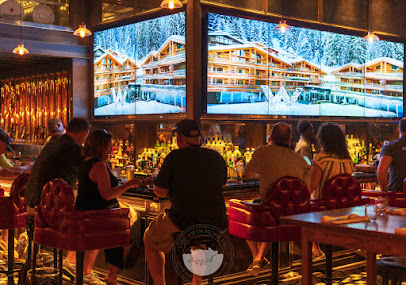
Nirvana Beach Bar
Nirvana Beach Bar: A tropical escape in Nassau with delicious food, refreshing drinks, and stunning ocean views awaits your visit.
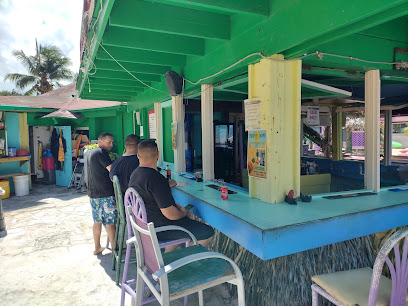
Bon Vivants
Bon Vivants offers a chic bar experience in Nassau, blending upscale ambiance with local flavors and vibrant nightlife for an unforgettable visit.
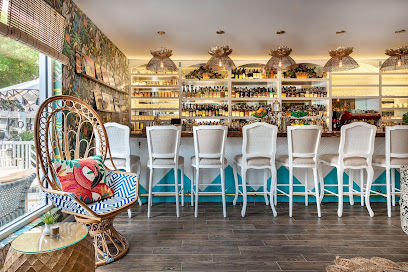
The Crew Pub
Experience the vibrant atmosphere and delicious flavors at The Crew Pub in Nassau, where local culture and hospitality shine.
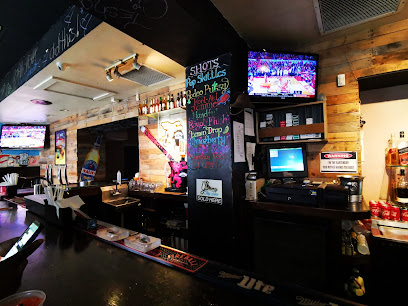
Shenanigans Irish Bar
Discover Shenanigans Irish Bar in Nassau, where lively atmosphere meets delicious food and drinks, perfect for sports fans and social gatherings.
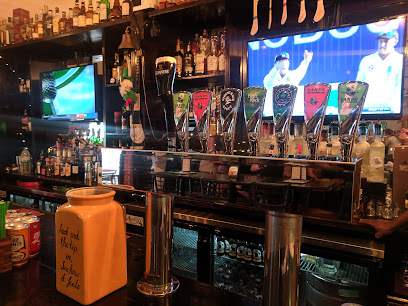
Tropicana Bar
Experience the vibrant spirit of the Bahamas at Tropicana Bar in Nassau, where refreshing drinks and a lively atmosphere await.
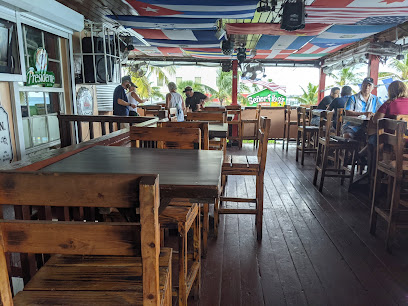
Winkys Bar
Experience the vibrant nightlife at Winkys Bar in Nassau, a lively spot for cocktails, live music, and unforgettable memories.
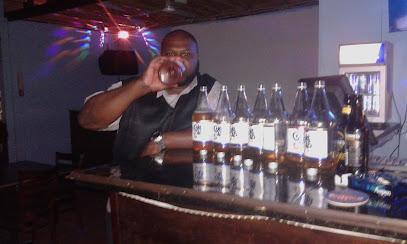
One Love Sporting Lounge And Bar
Discover the lively atmosphere of One Love Sporting Lounge And Bar in Nassau, where vibrant drinks, local cuisine, and live sports come together for an unforgettable experience.
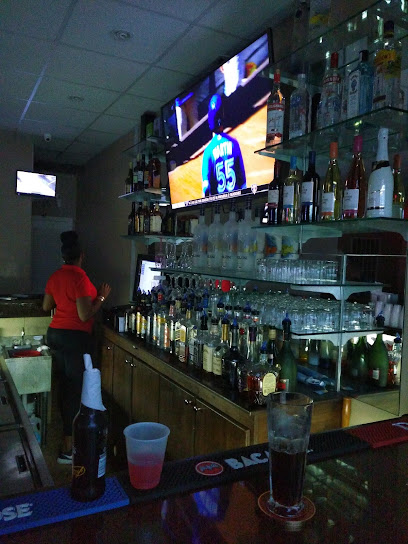
Atlantic Shipwreck Bar & Grill
Experience authentic Bahamian cuisine and vibrant atmosphere at Atlantic Shipwreck Bar & Grill in Nassau, a perfect spot for food and fun.
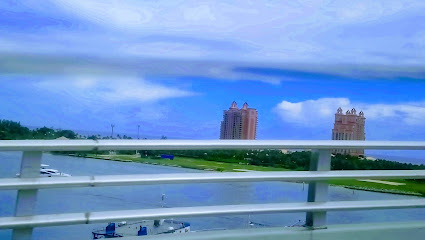
Red Door Bar
Discover the vibrant nightlife of Nassau at the Red Door Bar, where friendly faces and affordable drinks await your arrival.
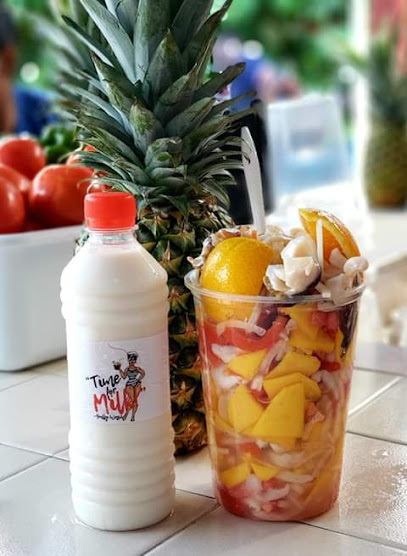
Jazz Bar
Discover the soulful sounds and vibrant atmosphere of the Jazz Bar in Nassau, where live music and exquisite cocktails create an unforgettable nightlife experience.
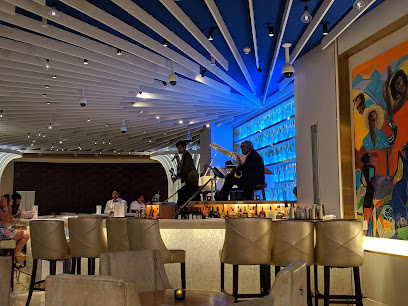
Seagulls Beach Bar
Experience the vibrant spirit of the Bahamas at Seagulls Beach Bar, where refreshing drinks and stunning ocean views await.
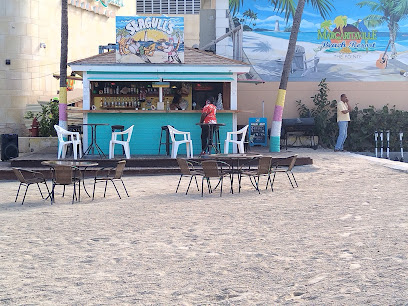
Local Phrases
-
- HelloHello
[Hello] - GoodbyeGoodbye
[Goodbye] - YesYes
[Yes] - NoNo
[No] - Please/You're welcomePlease/You're welcome
[Please/You're welcome] - Thank youThank you
[Thank you] - Excuse me/SorryExcuse me/Sorry
[Excuse me/Sorry] - How are you?How are you?
[How are you?] - Fine. And you?Fine. And you?
[Fine. And you?] - Do you speak English?Do you speak English?
[Do you speak English?] - I don't understandI don't understand
[I don't understand]
- HelloHello
-
- I'd like to see the menu, pleaseI'd like to see the menu, please
[I'd like to see the menu, please] - I don't eat meatI don't eat meat
[I don't eat meat] - Cheers!Cheers!
[Cheers!] - I would like to pay, pleaseI would like to pay, please
[I would like to pay, please]
- I'd like to see the menu, pleaseI'd like to see the menu, please
-
- Help!Help!
[Help!] - Go away!Go away!
[Go away!] - Call the Police!Call the Police!
[Call the Police!] - Call a doctor!Call a doctor!
[Call a doctor!] - I'm lostI'm lost
[I'm lost] - I'm illI'm ill
[I'm ill]
- Help!Help!
-
- I'd like to buy...I'd like to buy...
[I'd like to buy...] - I'm just lookingI'm just looking
[I'm just looking] - How much is it?How much is it?
[How much is it?] - That's too expensiveThat's too expensive
[That's too expensive] - Can you lower the price?Can you lower the price?
[Can you lower the price?]
- I'd like to buy...I'd like to buy...
-
- What time is it?What time is it?
[What time is it?] - It's one o'clockIt's one o'clock
[It's one o'clock] - Half past (10)Half past (10)
[Half past (10)] - MorningMorning
[Morning] - AfternoonAfternoon
[Afternoon] - EveningEvening
[Evening] - YesterdayYesterday
[Yesterday] - TodayToday
[Today] - TomorrowTomorrow
[Tomorrow] - 11
[1] - 22
[2] - 33
[3] - 44
[4] - 55
[5] - 66
[6] - 77
[7] - 88
[8] - 99
[9] - 1010
[10]
- What time is it?What time is it?
-
- Where's a/the...?Where's a/the...?
[Where's a/the...?] - What's the address?What's the address?
[What's the address?] - Can you show me (on the map)?Can you show me (on the map)?
[Can you show me (on the map)?] - When's the next (bus)?When's the next (bus)?
[When's the next (bus)?] - A ticket (to ....)A ticket (to ....)
[A ticket (to ....)]
- Where's a/the...?Where's a/the...?
History of Nassau
-
Nassau, originally known as Charles Town, was founded in 1670 by British colonists. The town was named after King Charles II of England. After being burned down by the Spanish in 1684, it was rebuilt and renamed Nassau in 1695 in honor of William III of England, from the Dutch House of Nassau.
-
During the early 18th century, Nassau became a haven for pirates, including infamous figures such as Blackbeard and Calico Jack. The sheltered harbor and lack of effective government made it an ideal base for pirate operations. The period, known as the ‘Republic of Pirates,’ lasted until the British established control in 1718.
-
In 1718, Woodes Rogers, a former privateer, was appointed as the first Royal Governor of the Bahamas. Rogers arrived in Nassau with a mandate to restore order and end piracy. He offered pardons to pirates who surrendered and used military force against those who resisted, successfully reestablishing British control over the islands.
-
After the American Revolutionary War, many Loyalists who had remained faithful to the British Crown fled to the Bahamas. They arrived in Nassau in the 1780s, bringing with them their slaves and agricultural practices, which significantly influenced the island's social and economic structure.
-
The mid-19th century saw Nassau's economy flourish due to the American Civil War. The Bahamas served as a base for blockade runners who smuggled goods to the Confederacy, bringing wealth to the islands. However, this boom was short-lived, ending with the war's conclusion in 1865.
-
In the 1920s, during the American Prohibition era, Nassau became a key hub for rum-running. The city’s strategic location and deep-water harbor made it an ideal point for smuggling alcohol into the United States. This illicit trade brought prosperity to the island until the repeal of Prohibition in 1933.
-
During World War II, the Duke of Windsor, formerly King Edward VIII, served as the Governor of the Bahamas. He and his wife, Wallis Simpson, resided in Government House in Nassau from 1940 to 1945. Their presence brought international attention to the islands.
-
The Bahamas gained internal self-governance in 1964, and on July 10, 1973, the country became fully independent from the United Kingdom, while remaining a member of the Commonwealth. Nassau, as the capital city, played a central role in this transition and continues to be the political and cultural heart of the Bahamas.
-
Today, Nassau is a vibrant city known for its rich history, cultural heritage, and stunning natural beauty. The city has become a major tourist destination, attracting visitors from around the world to its beautiful beaches, historic sites, and vibrant local culture.
Nassau Essentials
-
Nassau, the capital of The Bahamas, is accessible by air and sea. Lynden Pindling International Airport (NAS) is the main gateway, with direct flights from major cities in North America and Europe. Several cruise lines also dock at Nassau’s Prince George Wharf, making it a popular stop for Caribbean cruises. For inter-island travel, the Bahamasair and other regional carriers offer flights from various Bahamian islands.
-
Getting around Nassau is convenient with several options available. Taxis are widely available and can be hailed from the street or arranged through your hotel. Public buses, known locally as 'jitneys', are an affordable way to navigate the island, though they may not adhere strictly to schedules. Car rentals are available for those who wish to explore at their own pace. Additionally, many attractions are within walking distance in the downtown area.
-
The official currency is the Bahamian Dollar (BSD), which is pegged to the US Dollar (USD) at a 1:1 ratio. Both currencies are accepted interchangeably. Credit cards are widely accepted in hotels, restaurants, and shops, but it is advisable to carry some cash for small purchases and tips. ATMs are readily available in Nassau, especially in tourist areas.
-
Nassau is generally safe for tourists, but it is important to exercise caution. High-crime areas targeting tourists include the Over-the-Hill region and certain parts of Nassau Village. Avoid walking alone at night and be vigilant in crowded areas to prevent pickpocketing. Stick to well-lit, populated areas and avoid displaying large amounts of cash or expensive jewelry.
-
In case of emergency, dial 911 for police, fire, or medical assistance. Hospitals and clinics are available, with the Princess Margaret Hospital being the main public healthcare facility. It is advisable to have travel insurance that covers medical emergencies. Pharmacies are accessible for minor health issues, and many hotels have medical staff on call.
-
Fashion: Do dress casually but conservatively; beachwear is appropriate for the beach but not for town areas. Religion: Do respect local religious customs; many Bahamians are Christian, and it is respectful to dress modestly when visiting churches. Public Transport: Do use public buses ('jitneys') but be aware they may not follow strict timetables. Don't eat or drink on public transport. Greetings: Do greet people with a friendly 'hello' or 'good day'. Eating & Drinking: Do try local dishes such as conch salad and Bahamian rock lobster. Don’t refuse food when offered, as it may be considered rude.
-
To experience Nassau like a local, visit the Fish Fry at Arawak Cay for authentic Bahamian cuisine. Engage with locals at the Straw Market, where you can buy handmade crafts and souvenirs. Explore historical sites such as Fort Charlotte and the Queen’s Staircase for a glimpse into Nassau’s rich history. Attend a Junkanoo festival if your visit coincides with this vibrant cultural event.
Trending Landmark in Nassau
-
Nassau Bahamas Cruise Terminal
-
Queen's Staircase
-
Fort Montague
-
Ardastra Gardens & Wildlife Conservation Centre
-
Western Esplande Beach
-
Pirate Jeep Tours
-
Dolphin Cay Atlantis
-
Pompey Museum
-
Fort Fincastle
-
Prince George Wharf
-
St. Francis Xavier Cathedral
-
Clifton Heritage National Park
-
Government House
-
Junkanoo World
-
Nassau Harbour Lighthouse
Nearby Cities to Nassau
-
Things To Do in Andros Town
-
Things To Do in Harbour Island
-
Things To Do in Eleuthera
-
Things To Do in Lucaya
-
Things To Do in Bimini
-
Things To Do in Freeport
-
Things To Do in Exuma
-
Things To Do in Cat Island
-
Things To Do in Miami
-
Things To Do in Fort Lauderdale
-
Things To Do in Key Largo
-
Things To Do in Homestead
-
Things To Do in Stuart
-
Things To Do in Ft. Pierce
-
Things To Do in Key West
















